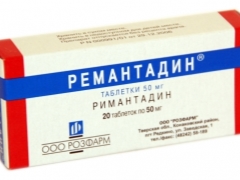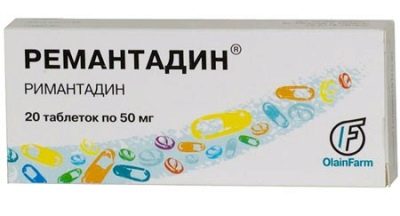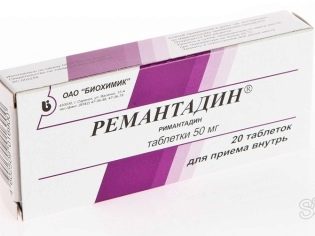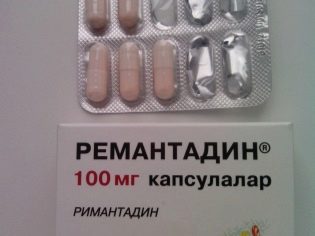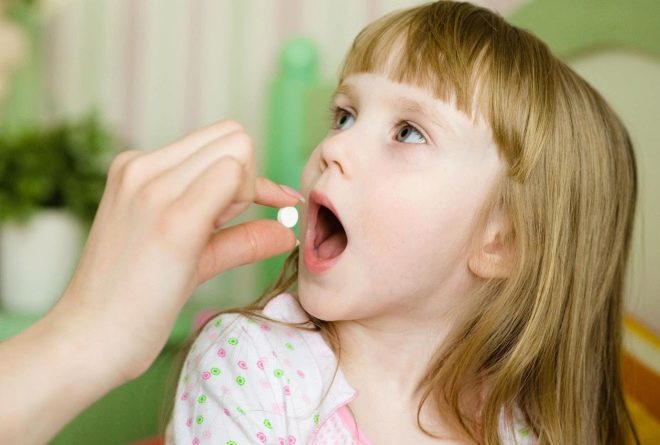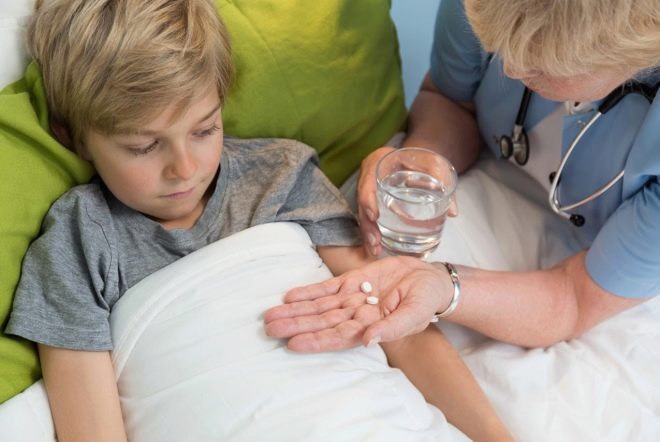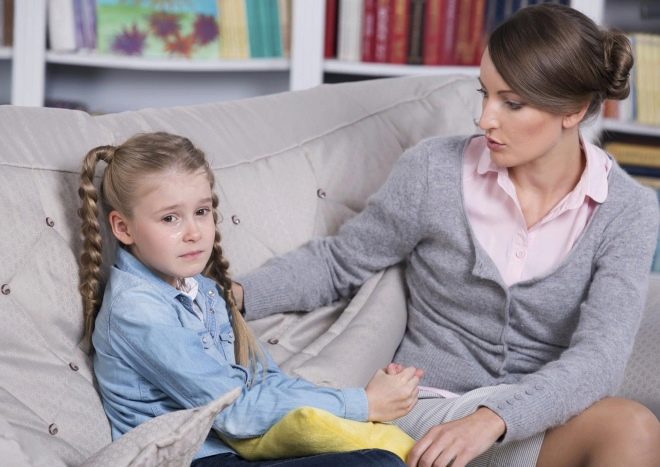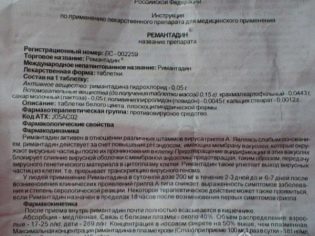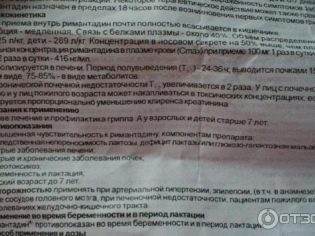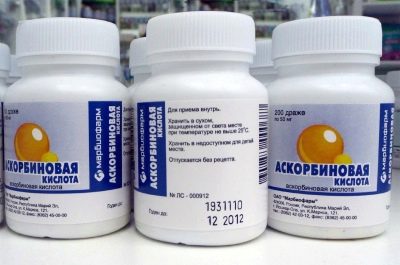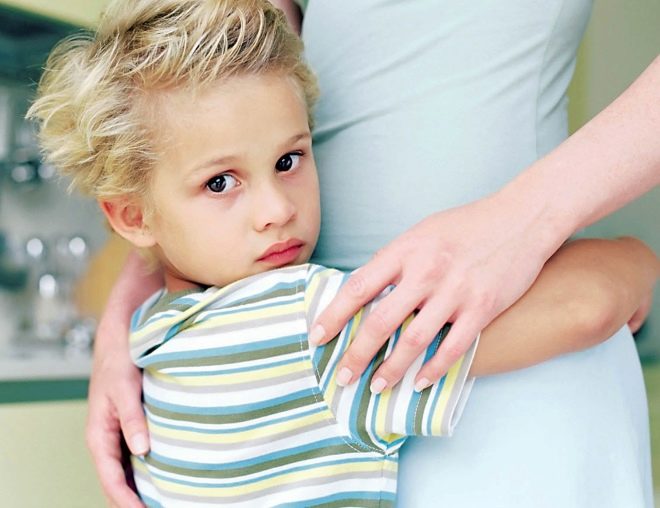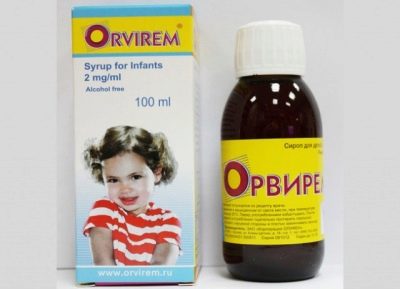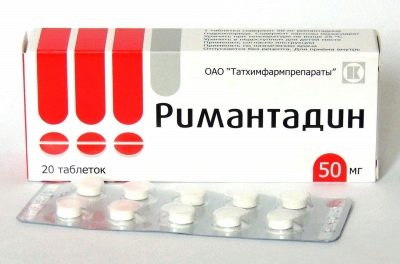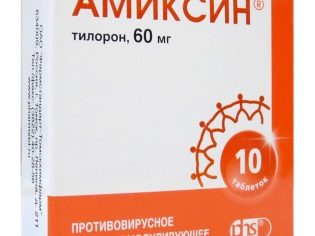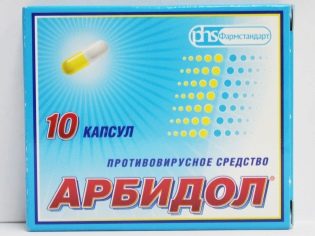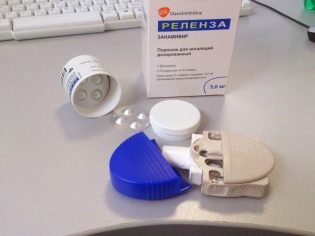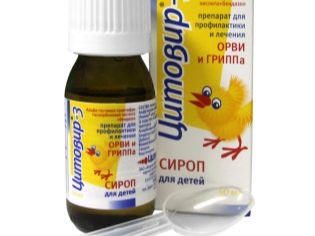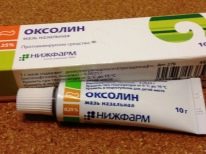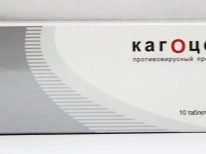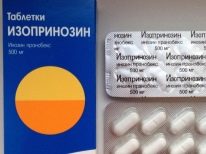Remantadin for children: instructions for use and reviews
In winter, the demand for antiviral drugs that can act on the causative agent of influenza is increasing. One of the most popular medicines in this group can be called rimantadine. It is often prescribed to adults both to prevent a viral infection and at the first symptoms of the flu in order to speed recovery. But is it possible to give such a drug to children, according to what scheme and for how long? What negative effects can rimantadine cause during the intake and what medications can be its full replacement for young patients?
Release form
Remantadin is available only in solid form. The drug produced in Russia from the companies Biochemist and Rosepharm are tablets. The Latvian manufacturer Olainfarm offers such a medicine in two forms - tablets and capsules.
Tableted rimantadine is represented by flat round white tablets. They are usually packaged in blisters of 10 pieces and sold in boxes of 1.2 or more blisters. In addition, this rimantadine is in pharmacies in glass jars.
Olainfarm capsules are sold in boxes of 30 pieces. They have a white gelatin shell, inside of which is placed an orange-pink or orange-brownish powder.
Composition
The main ingredient of the drug is called rimantadine hydrochloride. In one tablet, such a compound is represented by a dosage of 50 mg, and each capsule from Olainfarm contains 100 mg of rimantadine.
Auxiliary components of the drug differ from different manufacturers and include starch, lactose and other substances. If a child has an intolerance to any additional ingredients of tablets or capsules, the list of these compounds should be clarified on the packaging of the acquired rimantadine.
Operating principle
Rimantadine has antiviral effect based on the ability of the active substance of the tablets to inhibit the reproduction of viral particles. Since such oppression occurs in the early stages of the infection process, the greatest efficacy of the drug is noted when starting treatment in the first days of the disease.
The drug is effective against influenza viruses, especially against pathogen type A. In addition, rimantadine also affects arboviruses that provoke tick-borne encephalitis.
The medicine taken inside is almost completely absorbed in the intestine. Circulating in the patient's blood, the drug affects the foci of infection and in high concentration is determined in the secret of the nasopharyngeal mucosa.
The removal of the drug occurs mainly in the urine, so kidney disease can affect this process (the drug will accumulate in the blood and can cause an overdose).
Indications
Most often, rimantadine is prescribed for influenza for the early treatment of such an infection, as well as for its prevention during the epidemic season. In addition, tablets may be prescribed to prevent the development of tick-borne encephalitis, which is caused by a virus.
How old is it?
According to the annotations to the tablets, rimantadine can be given to children who have already turned 7 years old. If an antiviral medication is required for a younger patient (for example, at 4 years of age), one should choose an analogue approved for his age together with the doctor.The drug in capsules due to the higher dose is prescribed from the age of 14.
Contraindications
Remantadin tablets can not be given not only to children under seven years old, but also to patients who have:
- revealed intolerance to rimantadine or another drug ingredient;
- diagnosed with thyrotoxicosis;
- have any kidney disease;
- a serious liver disease was found.
The presence of epilepsy in a child, any diseases of the gastrointestinal tract or high blood pressure requires special caution when prescribing rimantadine.
Side effects
The children's body can respond to the medication by the appearance of:
- increased nervous excitability;
- allergic reaction;
- sleepiness;
- vomiting;
- tachycardia;
- pain in the stomach;
- dry mouth;
- deterioration of concentration and attention;
- flatulence;
- nervousness;
- reduced appetite;
- nausea;
- ringing in the ears;
- headache;
- anxiety;
- fatigue;
- shortness of breath;
- elevated bilirubin levels.
If at least one of the indicated symptoms is found in a small patient, the medication is canceled and the child is shown to the doctor to prescribe another therapy.
Instructions for use
The drug should be taken after eating without digging through, washed down with plain water.
A single dose of medication depends on the age of the child:
- patients under the age of 14 should be given Riemantadine 50 mg per dose;
- adolescents over 14 years old are given 100 mg of the drug at a time.
The frequency of admission is also determined by the age of the patient:
- if the child is 7-10 years old, then the medication should be taken twice a day;
- for patients 10–14 years of age, the treatment regimen is three times a day;
- children older than 14 years old are prescribed the drug, as adults, on the first day three times, on the second or third day twice, and then only once a day.
If rimantadine is used as a prophylactic, the medication is given at any age on 50 mg once a day.
The duration of use for the flu, if the symptoms of the infection have already appeared, is usually 5 days. If Remantadin is discharged as a prophylaxis, it can be drunk for children 10-15 days in a row. For patients older than 14 years, the prophylactic course can last up to 30 days.
If the medication is prescribed to prevent viral encephalitis, it is prescribed at a dose of 100 mg twice a day. Take rimantadine in this dosage is necessary in the first 72 hours after the tick bite.
Overdose
An excessively large dose of the drug can cause nervous excitement, arrhythmias, abdominal pain, insomnia, hallucinations, seizures, and other symptoms. If an overdose is detected, you should immediately induce vomiting and consult a doctor so that he prescribes symptomatic remedies.
Drug interaction
Remantadin should not be used with anti-epilepsy drugs, as it will reduce their effectiveness. When applied simultaneously with enveloping drugs, astringents or adsorbents, the absorption of rimantadine from tablets will worsen. The drug is also not recommended for use with acetylsalicylic acid or paracetamol.
If a child is given medicines that can acid urine (for example, ascorbic acid), rimantadine will be strongly excreted from the body, which will reduce its therapeutic effect. At the same time, urine alkalizing preparations (for example, sodium bicarbonate), on the contrary, will increase the effectiveness of rimantadine.
Terms of sale and storage
You do not need a prescription from a doctor to buy Remantadin, but consultation with a pediatrician or another physician is desirable.
The price of the tablet product depends on the manufacturer and the number of pieces in the package. It can be from 20 to 190 rubles. For one pack of capsules you need to pay about 200 rubles.
At home, the drug must be stored in a dry place in which the temperature will not exceed +25 degrees. It is also important that the medicine is not easily accessible to children. The shelf life of rimantadine is usually 5 years.
Reviews
The use of rimantadine with flu is mostly good, calling this medicine effective and affordable. According to moms, pills help best if you start giving them at the first symptoms of the disease. The medication is mostly normal, but some patients have unpleasant side effects, such as nausea or allergies.
What to replace?
As noted above, rimantadine does not have other forms besides tablets and capsules, due to which the drug is not used at an early age. In addition, many children over the age of 7 are also uncomfortable with taking solid medicine, therefore, rimantadine analog in the form of syrup is in great demand. It's about medicine Orviremwhich is produced specifically for young patients.
This drug is sold in bottles containing 100 ml of pink syrup with a sweet taste like strawberries. The active ingredient of the drug, as in Rimantadine, is represented by rimantadine hydrochloride. Each milliliter of syrup acts as a source of 2 mg of such a compound, and 5 ml of the preparation contain it in a dosage of 10 mg. Like rimantadine, its analogue in syrup is most often prescribed for influenza or for its prevention. It is used in children older than 1 year.
For older children, for example, at age 8 or 10 years, rimantadine may be replaced by analogs in tablets, which are called Rimantadine. Such a tableted medicine is produced by many Russian pharmaceutical factories, including Dalkhimpharm, Aveksima, Ozone, Tatkhimpharmpreparaty and other manufacturers.
Rimantadine is represented by tablets containing 50 mg of the active substance of the same name in each. Such a medicine is sold for 10-40 tablets per pack and is often used instead of rimantadine, because the active compound and its dosage are the same for these drugs.
If the use of rimantadine and its analogues with the same active ingredient is not possible, the child is prescribed other antiviral drugs. Among them are very popular such tools.
- Relenza. Such medicine in the form of powder for inhalation is prescribed in the first days of the flu or to prevent such an infection. The drug is permitted from 5 years of age.
- Tsitovir-3. This syrup is prescribed for acute respiratory viral infections and flu in young patients older than one year.
- Amiksin. Such tablets on the basis of tilorone effective against influenza viruses, herpes, hepatitis and other pathogens. They are prescribed to children over 7 years old.
- Arbidol. This medicine has not only antiviral, but also immunostimulating effects. It is prescribed for infection with rotavirus, various acute respiratory viral infections and other infections. This tool is released in the powder (it is prepared from suspension), capsules and tablets. Older children 3 years it is discharged at a dosage of 50 mg, and Arbidol at a dosage of 100 mg is prescribed from 6 years.
- Kagocel. This antiviral drug activates the production of interferons and is often used for influenza, infection with the herpes virus and other pathogens. It is represented by tablets used in children from 3 years of age.
- Oxolin. This nasal ointment is in demand for the prevention of influenza and can be used in children 2 years and older.
- Isoprinosine. The effect of such pills extends not only to the causative agents of the flu, but also to many other viruses. Children are prescribed for them from 3 years old with a weight over 15 kg.
These and many other analogues of rimantadine help to cope with the influenza virus and speed up recovery, as well as prevent infection, but they should not be used without pediatrician control. If a child has high fever, pain, cough and other symptoms of ARVI, one should not go to the pharmacy for antiviral medication, but seek medical attention.
If the child is often sick and he needs to strengthen the immune system, the best way out will also be a medical examination. Only then can the doctor prescribed drugs acting on viruses or on the small patient's immune system be given.
All about antiviral drugs will tell Dr. Komarovsky in the next video.
